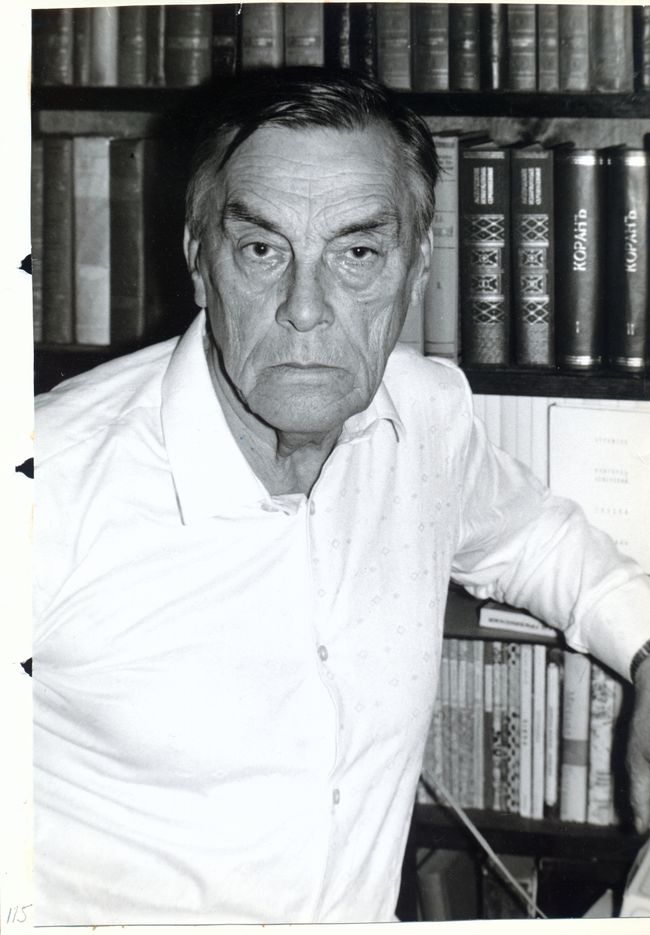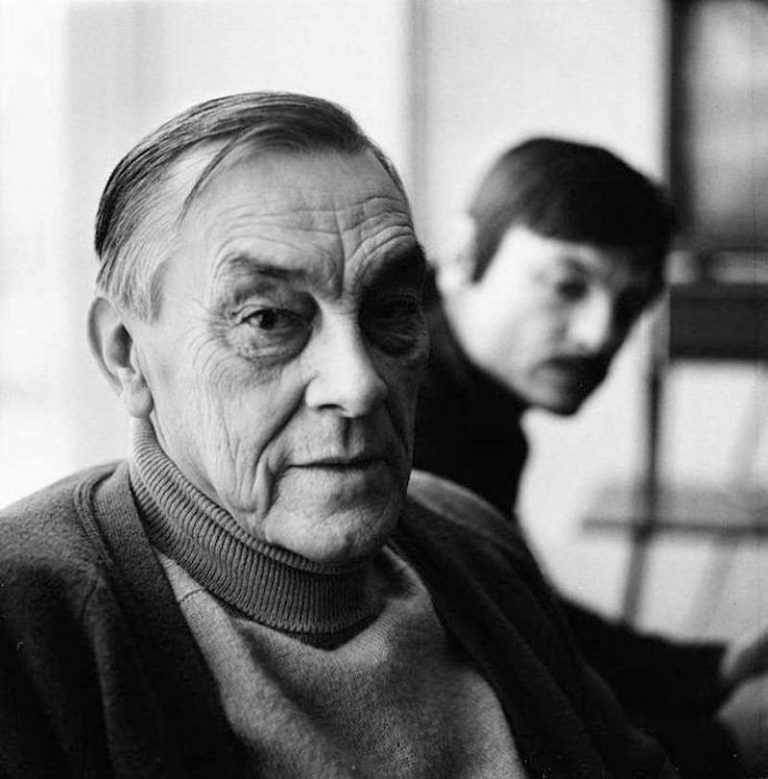
Photos Andrei Tarkovsky
Arseny Alexandrovich Tarkovsky was born in the Ukrainian city of Elisavetgrad (now Kirovohrad) in 1907 and moved to Moscow in 1923, working as a newspaper journalist and publishing his first poems. By the late 1930s, he had become a noted translator of Turkmen, Georgian, Armenian, Arabic, and other Asian poets..

Eight hidden suitcases Meet the Soviet physicist who hosted the USSR’s bestknown underground
Ninety two poems by Arseny Tarkovsky. RuVerses. Arseny Tarkovsky. Arseny Tarkovsky Poems. 1907-1989. 1926. The Lethe's wind is blowing over me. 1929. Before the leaves fall; 1935. On a scrap of paper then I scribbled down the long address. 1938. Rain; 1940. Here`s our table set for six. The Cricket;

Arseny Tarkovsky by Russian photographer Pinkhassov (b. 1959), 1979. Moscow. © MAGNUM
Arseny Alexandrovich Tarkovsky was born in the Ukrainian city of Elisavetgrad (now Kirovograd) in 1907 and moved to Moscow in 1923, working as a newspaper journalist and publishing his first poems. By the late 1930s, he had become a noted translator of Turkmen, Georgian, Armenian, Arabic, and other Asian poets..

Arseny Tarkovsky Кинорежиссёр
1907-1989 Arseny Tarkovsky is one of the leading Russian poets to emerge from the Soviet era, though during most of his life- time he was known for translations of Asian poetries. His son Andrei Tarkovsky's films gave his verse a second life. Poems by Arseny Tarkovsky A blind man was riding an unheated train To Poems Poems by This Poet

Simply Jews Arseny Aleksandrovich Tarkovsky and quandaries of translation
Born the son of prominent Russian poet Arseny Alexandrovich Tarkovsky, Andrei was surrounded by artistic influences from a very young age. His father would soon leave the family to join the war, in addition to being evacuated from Moscow to Yuryevets with his sister and mother. Themes from Tarkovsky's childhood and memory play a pivotal role.

arseny tarkovsky Archives automachination
Arseny Alexandrovich Tarkovsky was born in Elisavetgrad, Russia. A brilliant linguist, specializing in Asian and Middle Eastern languages, he published his first literary translations in 1932 and worked in this field most of his life; his renderings of the Armenian bard Sayat Nova are still popular in his country..

Photos Andrei Tarkovsky
Before his death in 1989, Arseny Alexandrovich Tarkovsky (b. 1907) was widely admired as the last Russian Silver Age poet and among the greatest Russian poets of the twentieth century. Tarkovsky once called himself "the youngest branch on the tree of Russian poetry."' He was a colleague, rival,

Arseny Alexandrovich Tarkovsky Da così tanto tempo sono nato YouTube
Arseny Alexandrovich Tarkovsky was born in the Ukrainian city of Elisavetgrad (now Kirovohrad) in 1907 and moved to Moscow in 1923, working as a newspaper journalist and publishing his first poems. By the late 1930s, he had become a noted translator of Turkmen, Georgian, Armenian, Arabic, and other Asian poets..

Arseny Tarkovsky, poeta, padre de Andrei Tarkovski Magnum Photos, Russian Poets, Photographer
Arseny Tarkovsky (1907-1989), the filmmaker's father, was perhaps the most technically and lyrically accomplished poet of Russia's "War Generation." He worked as a translator of poetry and as a war correspondent. Wounded in action in WWII, he suffered six progressive amputations of his leg.

Arseny Tarkovsky Книги, Кинорежиссёр, Деятель искусств
Arseny Alexandrovich Tarkovsky (Russian: Арсений Александрович Тарковский, June 25 [O.S. June 12] 1907, Elisavetgrad - May 27, 1989, Moscow) was a prominent Russian poet and translator. His poems appeared in the films The Mirror and Stalker, directed by Andrei Tarkovsky, his son.

Return All You Took In Poems by Arseny Tarkovsky Harvard Review
Genealogy for Arseny Alexandrovich Tarkovsky (1907 - 1989) family tree on Geni, with over 230 million profiles of ancestors and living relatives. People Projects Discussions Surnames

Arseny and Andrei Tarkovsky at home in Yuryevets, c. early 1930s. Home, 1930s, Instagram
Arseny Aleksandrovich Tarkovsky was born on June 25, 1907 in Elisavetgrad into the family of a Narodnik (a revolutionary-minded person). As Tarkovsky put it himself, he started writing poetry "from the potty". In the Tarkovskys family poetry was a natural form of communication.

Andrei Tarkovsky quotes Beauty will save Кинорежиссёр, Исторические фотографии, Деятель искусств
Arseny Tarkovsky 4.40 25ratings1review Want to read Buy on Amazon Rate this book Book by Poetry Paperback First published December 1, 1990 About the author Arseny Tarkovsky 44books70followers Ratings & Reviews What do you think? Rate this book

Arseny Tarkovsky
His father was the poet Arseny Tarkovsky, who wrote in a ruggedly lyrical style, in the mold of Anna Akhmatova. Four years after Andrei was born, Arseny had an affair and abandoned the family.

Arseny Tarkovsky redes repletas de imortalidade De anima verbum
Sculpting in Time (Russian "Запечатлённое время", literally "Captured Time") is a book by Russian filmmaker Andrei Tarkovsky about art and cinema in general, and his own films in particular. It was originally published in 1985 in German shortly before the author's death, and published in English in 1987, translated by Kitty Hunter-Blair. [1]

““ Andrei’s father, Arseny Tarkovsky, Moscow (1937). ” ” Кинорежиссёр
Description Arseny Alexandrovich Tarkovsky was born in the Ukrainian city of Elisavetgrad (now Kirovohrad) in 1907 and moved to Moscow in 1923, working as a newspaper journalist and publishing his first poems. By the late 1930s, he had become a noted translator of Turkmen, Georgian, Armenian, Arabic, and other Asian poets.